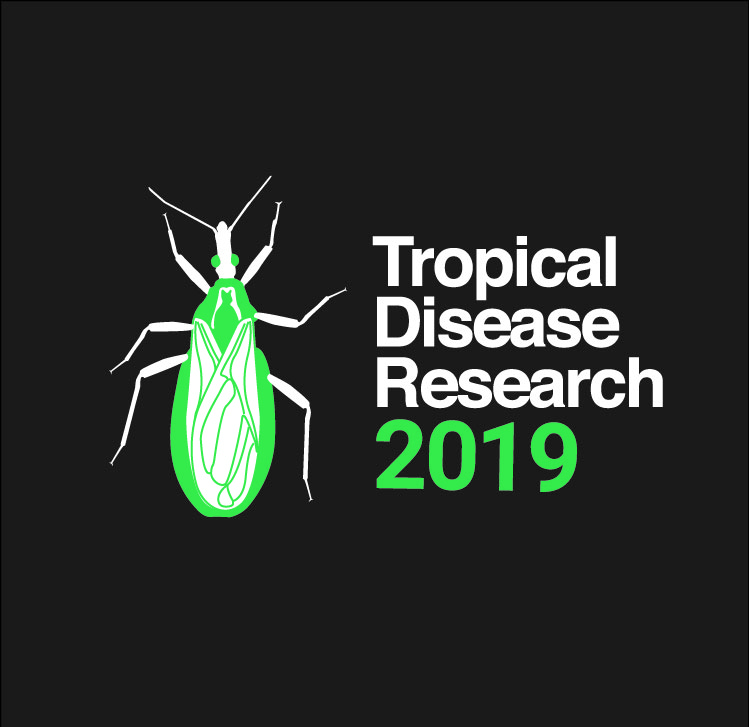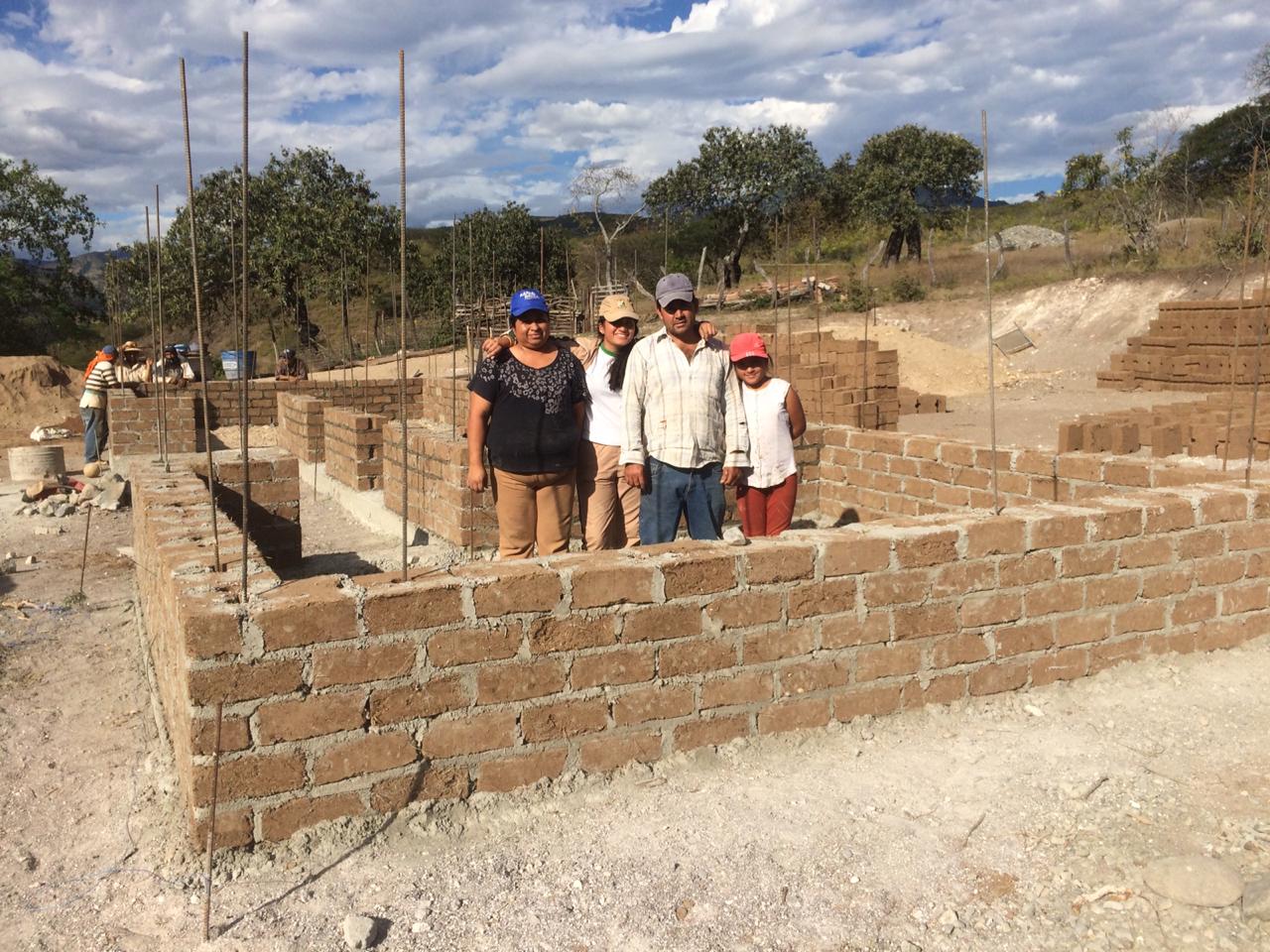By Elijah Hendrix (Ohio University student and TDR participant)
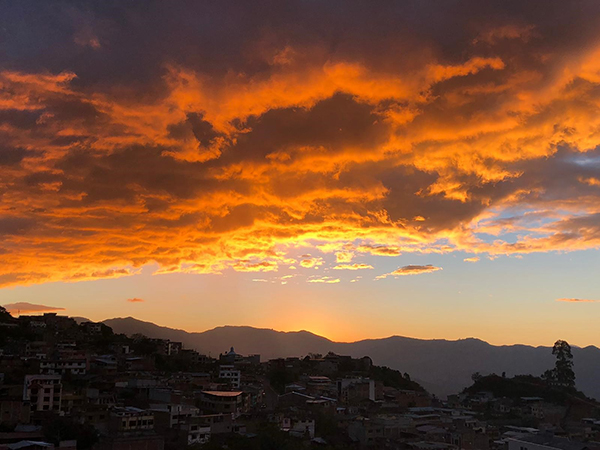
Sunset at Loja province, panoramic view of Cariamanga.
I have always felt a connection to service, health, and doing the right thing for the benefit of others and as a Cutler Scholar at Ohio University, I am encouraged to participate in service projects each year and this summer was not the exception. Through the lectures in my public health class and the conversations I had with my professors, I was able to come to the issue of Neglected Tropical Diseases, specifically, Chagas Disease research in Ecuador.
Throughout my participation in the program, I had many reflection opportunities. I am able to sum up my experience in three words: learning, community and service. Before this trip started, I only thought of learning as a one-way street. For example, in school, a professor stands in front of a classroom of 200 people and there is little to no interaction within the flow of information. I was prepared to have small talk with the people of the communities that we would be visiting and teach them what I know. The night before the first day, my cohort and I discussed the importance of sitting back and listening before acting to ensure the most collaboration between our team and the communities. I did not quite understand the meaning of listening first, but I kept an open mind.
Official logo (more information)
I am glad that I was open to this idea of listening before acting because by the end of the first day, I realized that learning could be a two-way street. During conversations with the members of the community, I discovered new definitions to the words: dedication, community, happiness and wealth. Previously, I correlated the word wealth with a monetary figure. The people within the community showed me how wealth and happiness could have different expressions within different social and economic systems.
The fact that the community members helped build their own houses and gardens really raised morale, which made them feel empowered. I am so glad that I was able to help change the lives of a family and empower the community members by providing my services towards building a new living place that is Chagas-free.
Espinoza family, partners for the construction of the 7th anti-chagas house (more information about the Healthy Homes for Healthy Living Iniciative).
One of the big differences that I noticed was the amount of communication, dedication and respect that each community had. I was very impressed to see that people actually said “Hola or Buenos Días” to each other when passing, rather than looking down to avoid eye contact.
Speaking on communication, what impressed me the most was how each community member knew who lived in what house and what their daily schedules were even though the closest house to them could be on the other side of a mountain.
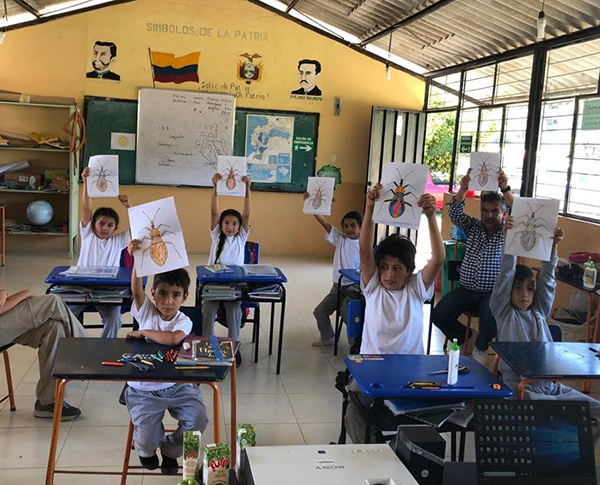
After this experience, I learned that service must come from a desire to see a person or community for their value, not their deficits. Service should not derive from the negative aspects of a system, but flourish on the positive ones. With each project that I participated in during this experience, came a level of playing off strengths to create a lasting impact within the short window of time that we had.
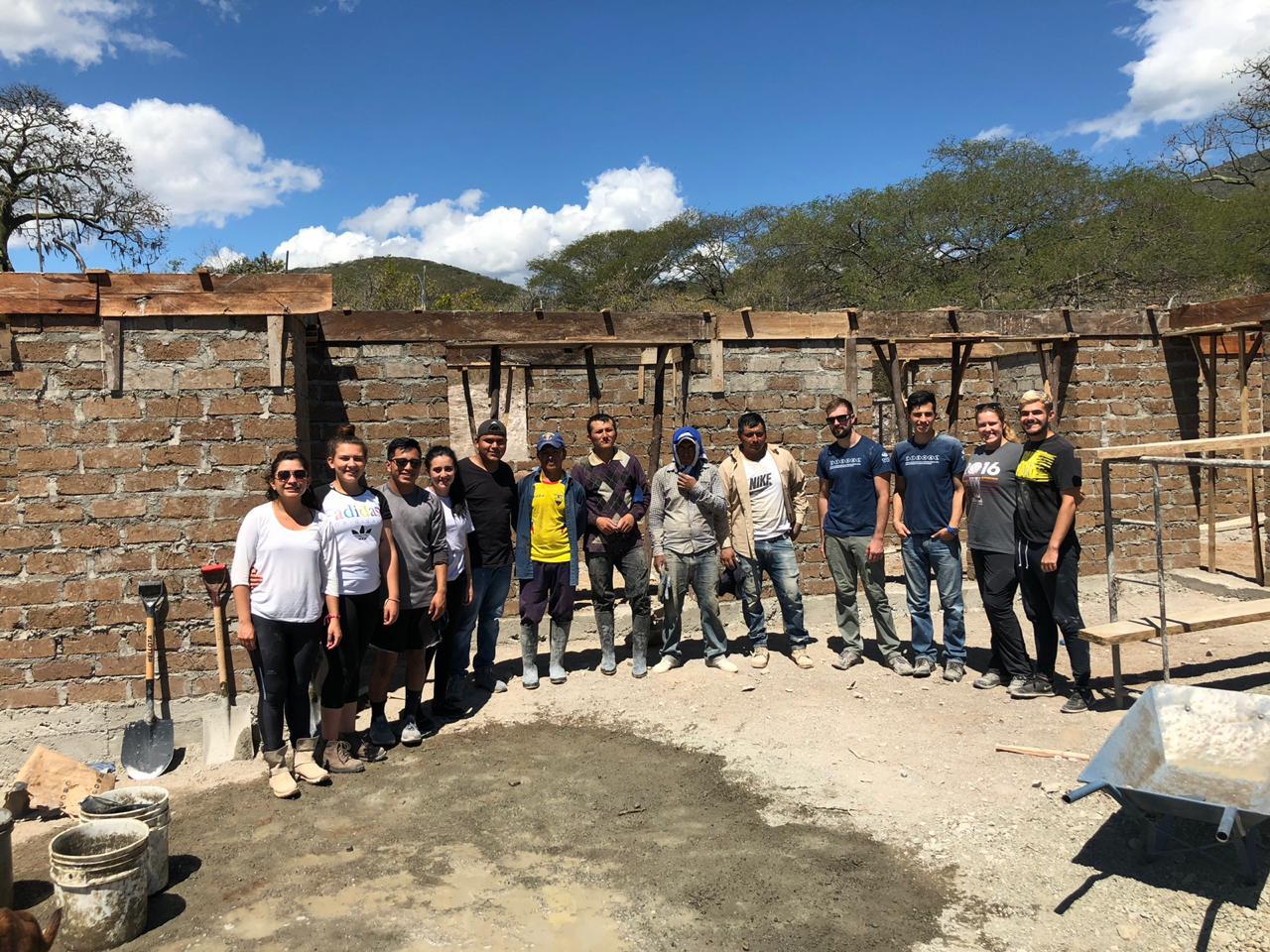
Construction team: For 2 weeks students form OU and PUCE participated in the construction of the house BM305.
The first project I participated in was building a new home for the Espinoza family. This was the most difficult project, yet the most rewarding because I was able to see the immediate progress that my team and I made. I am so glad that I was able to change the lives of a family by providing them my services towards building a new living place. I even had the opportunity to attend a ceremony where the director of Pontificia Universidad Catolica del Ecuador blessed the new home and said prayers for the family and Bellamaría. The neat thing about this event was that the entire Bellamaría community attended and we all had a celebration afterwards.
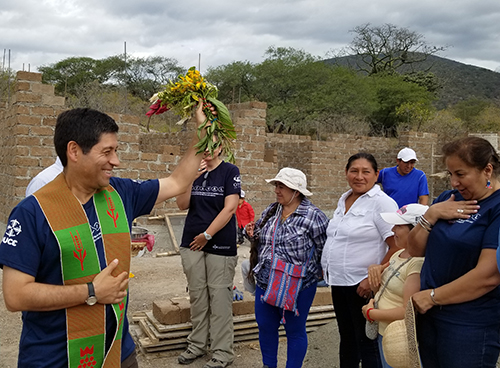
Dr. Fernando Ponce León S.J., blessing the new home of the Espinoza family.
The next day, I was able to participate in my personal favorite project – entomological searches. For those that do not know, entomological searches consist of a team taking pictures and plotting the location of the house in a GPS, going into houses (after consent of course) and looking for Chinchorros or “kissing bugs.” As someone that is studying global and community health, I was delighted to work alongside the Ministry of Public Health in Ecuador directly while searching for Chinchorros.
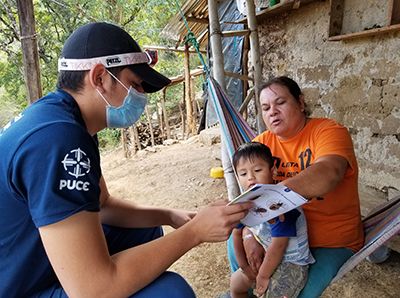
Entomological team
Besides of the entomological team, I also participated in other projects such as:
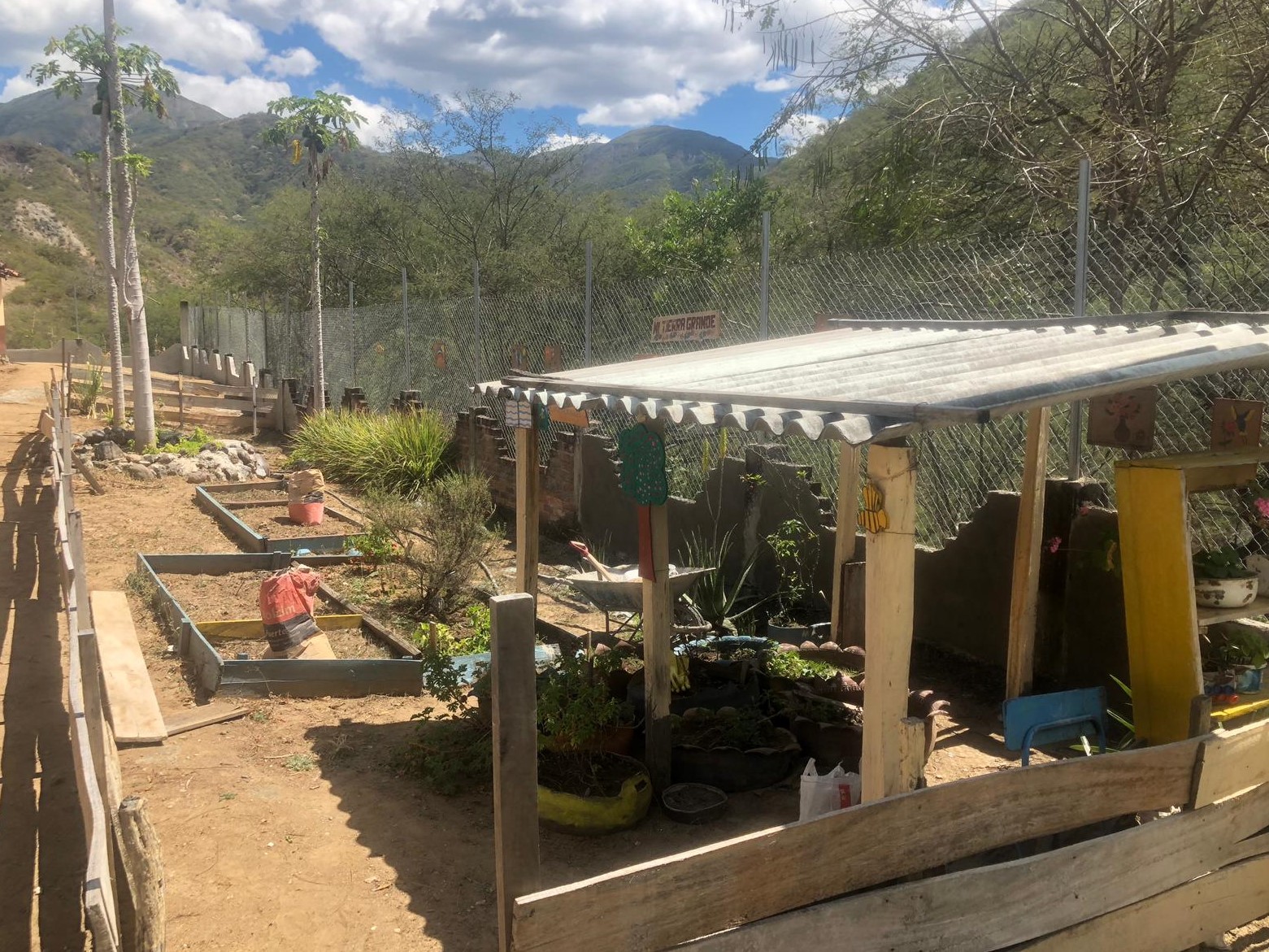
Productive gardens
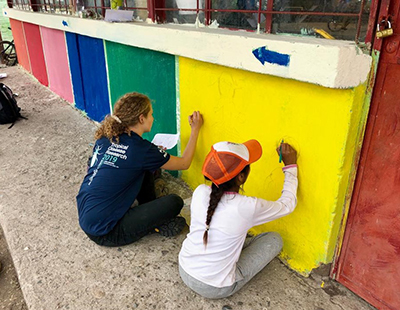
Service learning
I believe that any student should take part in this life-changing program. My cohort consisted of the following majors: Agriculture, Architecture, Biological Sciences, Communication, Health Service Administration, and even a handful of students in medical school. The best part of this interdisciplinary group was perspective and how each project matched the strengths of each field of study. I strongly recommend this experience to any student that is interested in health, education and sustainability, service learning, or even someone that just wants to practice their Spanish. The students created their own community that will last for many years within the first day of all being together – we also really enjoyed Ecua-volley. I am extremely proud to say that I have been part of the fight against Chagas Disease.
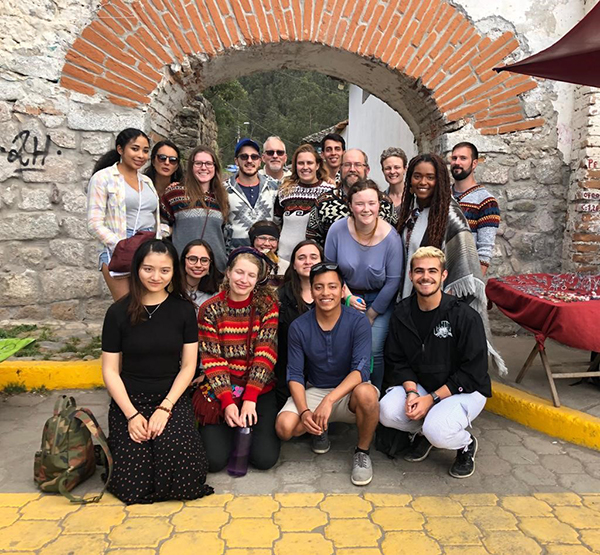
¡Con nuestra labor, sin Chagas Ecuador!
Related links: Healthy Homes for Healthy Living



